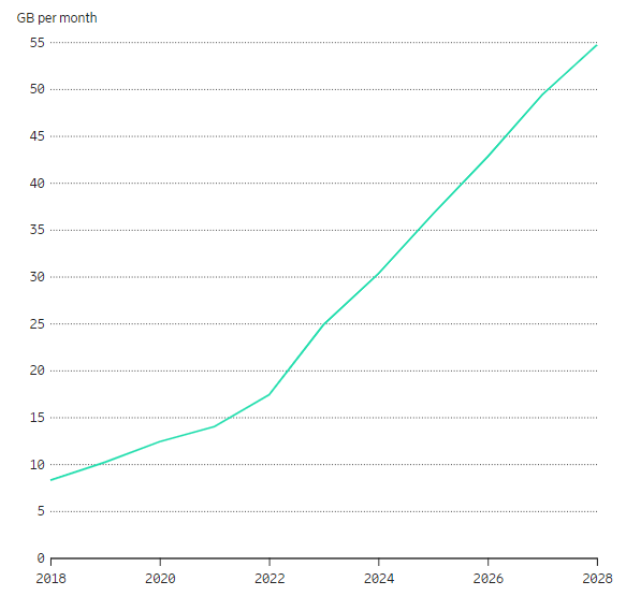The US Commerce Department’s National Telecommunications and Information Administration (NTIA) is developing a National Spectrum Strategy with a goal to identify at least 1,500 megahertz of spectrum to study for potential new uses.
 “Today spectrum plays a central role in American life in a way that it never did before, from cellphones to aviation safety to weather prediction,” NTIA Administrator Alan Davidson said, Reuters news report said.
“Today spectrum plays a central role in American life in a way that it never did before, from cellphones to aviation safety to weather prediction,” NTIA Administrator Alan Davidson said, Reuters news report said.
Alan Davidson said the 1,600 megahertz goal over a decade was achievable but difficult.
NTIA, which jointly manages spectrum with the Federal Communication Commission (FCC), is seeking public input to identify new spectrum bands for potential repurposing that will spur competition and innovation, Commerce Secretary Gina Raimondo said.
The strategy will address spectrum needs, including fixed and mobile wireless broadband, satellite communications and other space-based systems; advanced transportation; and industrial and commercial applications.
It will address wireless medical devices and telemedicine, the Internet of Things and smart cities, and key government uses including national defense, national airspace, critical infrastructure and climate monitoring and forecasting, Alan Davidson said.
Congress last week let the FCC’s authority to auction wireless spectrum lapse for the first time in three decades, prompting some lawmakers to restore the authority. FCC earlier said it has raised more than $233 billion in proceeds for the U.S. government through 100 auctions.
“It is my hope that the FCC’s auction authority is restored quickly so that this important program is once again able to produce results for consumers and the economy,” Federal Communications Commission Chairwoman Jessica Rosenworcel said on March 10.
Demand for spectrum use is soaring as are planned new uses like connected vehicles. Mobile U.S. wireless data traffic rose 20 percent in 2021. The latest mobility report from Ericsson said the average monthly mobile data usage per smartphone is expected to reach 55 GB in 2028 in North America. 5G subscription penetration in North America will be the highest of all regions, exceeding 90 percent.
Alan Davidson said a contentious dispute over 5G C-Band spectrum and aviation use showed industry and government recognize “we need a coordinated approach” to managing current and future spectrum use.
“We’ve got 6G networks coming, new mega-constellations of satellites, connected automobiles, the internet of things – all of that demands new uses of spectrum,” Alan Davidson said.
